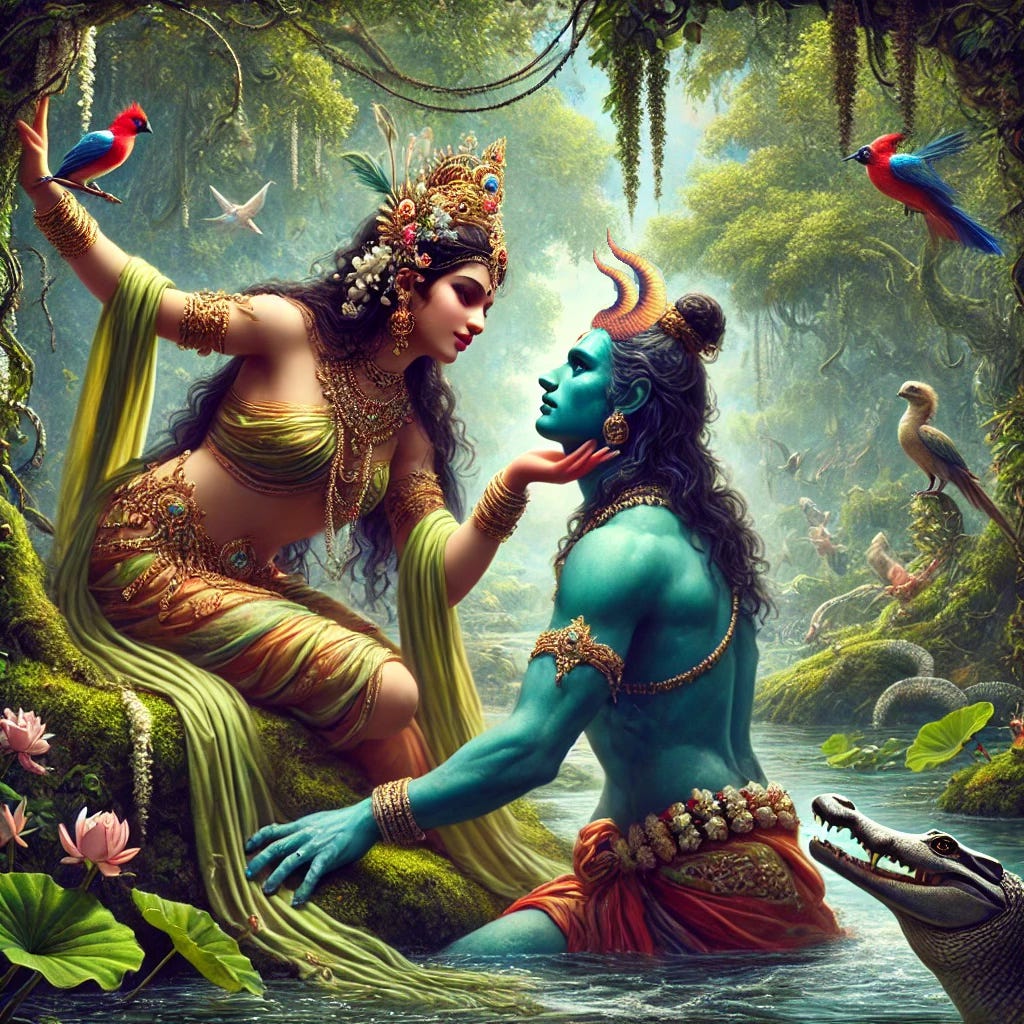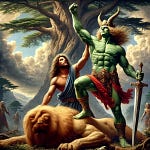Shamhat was a Priestess of Ishtar. Priests and priestesses of Ishtar were frequently gender fluid, bisexual or transsexual; flexible gender identity was openly accepted in many ancient societies, and, as we’ll see in the next song, Enkidu himself dons a gender-fluid identity when he goes to meet Gilgamesh.
Shamhat is sent as a seductress, a temptress; and yet they make love repeatedly for so long (several weeks, according to the epic) that the attraction must have transformed itself into more than a mission on behalf of Gilgamesh alone. Enkidu is, after all, incredibly attractive: and Shamhat falls under his charms despite the originally mercenary (or at least dutiful) nature of her mission.
It becomes a love story.
All the repeated references to breasts and open legs are not my own invention—which is what my wife originally thought. The original epic makes these references over and over again, emphasizing the forthright, animal sexuality of the encounter. Perhaps that’s appropriate enough; Enkidu enters the saga cast in the role of a more primeval man, more beast than human being. When he arrives in Uruk he doesn’t even know how to eat bread or drink beer. Pathetic, eh?
In the end, it seems to be trust as much as destiny that leads Enkidu to follow Shamhat into Uruk; and that makes more sense. It can’t be fate or destiny alone, of course, because Shamhat has to be tasked to lure Enkidu into the city.
In the Nakedness of Dreams (Shamhat)
In the nakedness of dreams
I see your breasts
In the nakedness of morning
I adore you
I worship your open legs
As the sun comes up
In the green reeds of the marsh
Where the fish are plenty
In the dawn of the doves,
We lay down together
On the wings of great blue herons
I make love to you
In the amber afternoon
We lie like fawns,
And run to love like antelopes
I sense the magic signs
you have carved in me.
With the sweet deep ripples of your thighs
Seven days and seven nights
We have made deep love
In the nakedness of dreams
We have made the best kind of love.
Enkidu,
For seven days and nights I’ve loved you
Now the time has come
To leave this garden of delight
Come hither, listen well:
There is no magic here, but in Uruk
The king named Gilgamesh casts spells–
Drawn from mighty books
You are as strong as Gilgamesh and brave
I wager you can put him in his grave.
—Shamhat, I am a simple man at heart
Of this evil I would have no part—
Sweet Enkidu,
the world is deeper than the sea,
Good and evil
bend together at the knee
To find true life and know your art
These hills you must depart:
To the city of Uruk
—Seven days and seven nights
we have created fire—
Now desire
lights an even greater flame
The burning light of hero’s fame.All words and music copyright 2024 by Lee van Laer.














Share this post